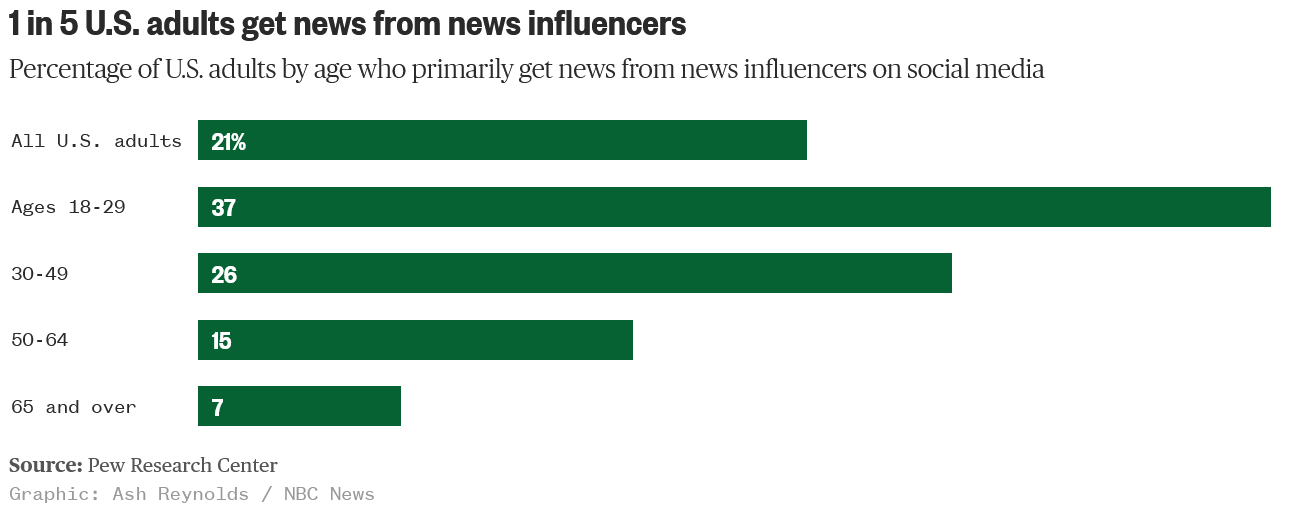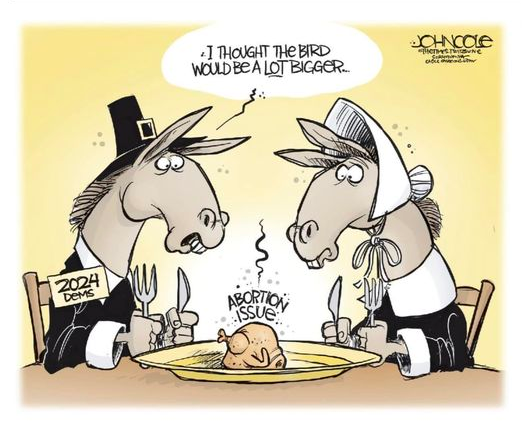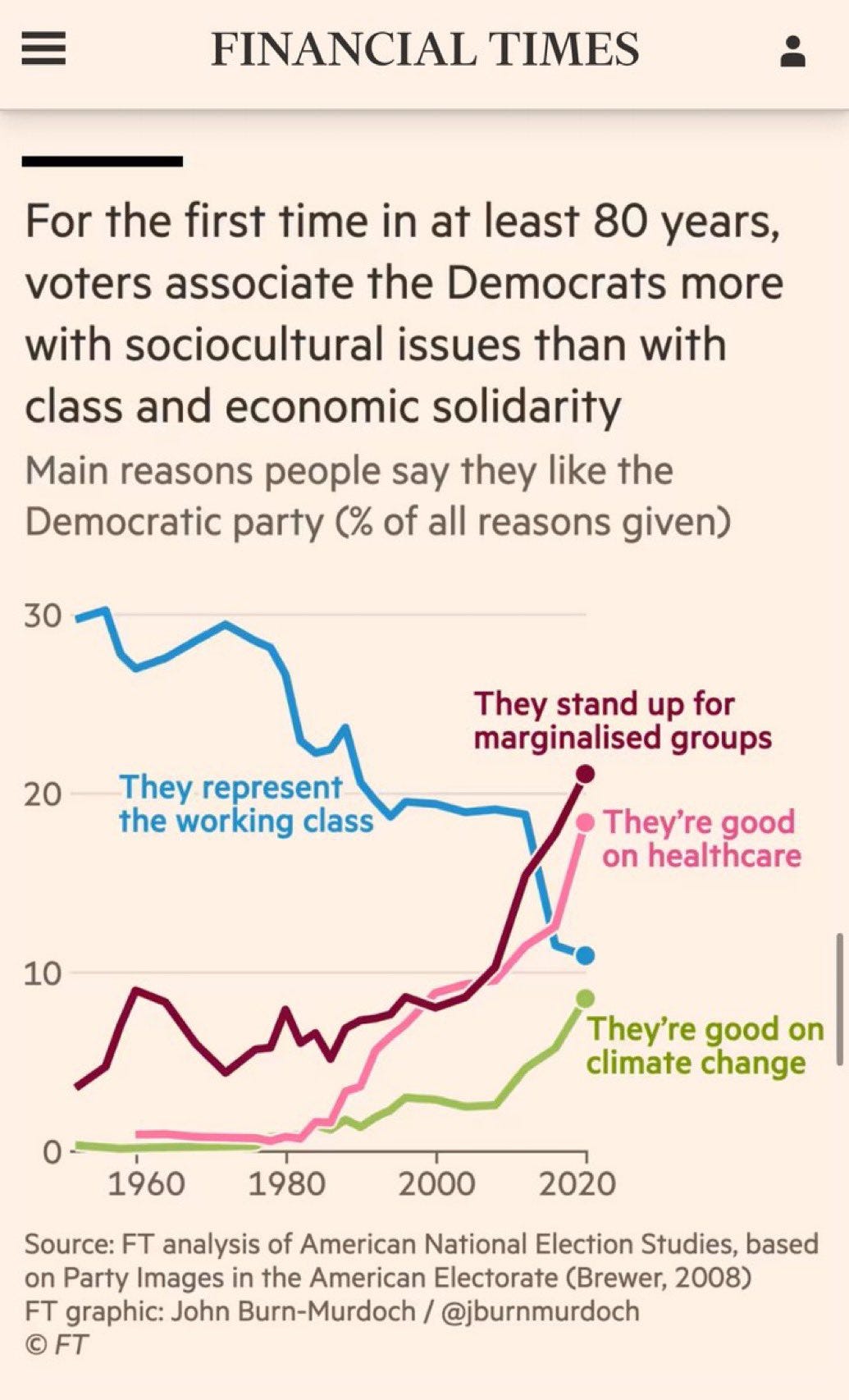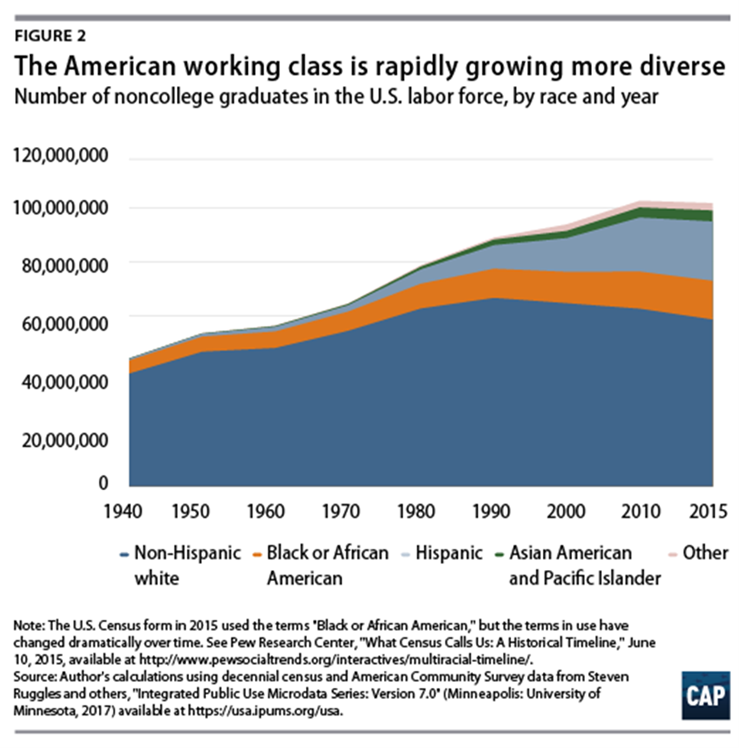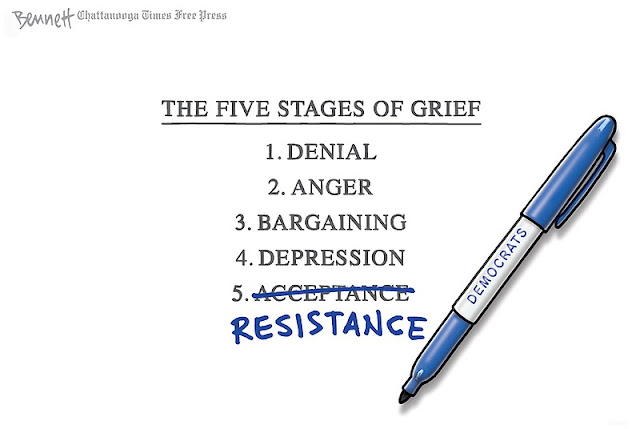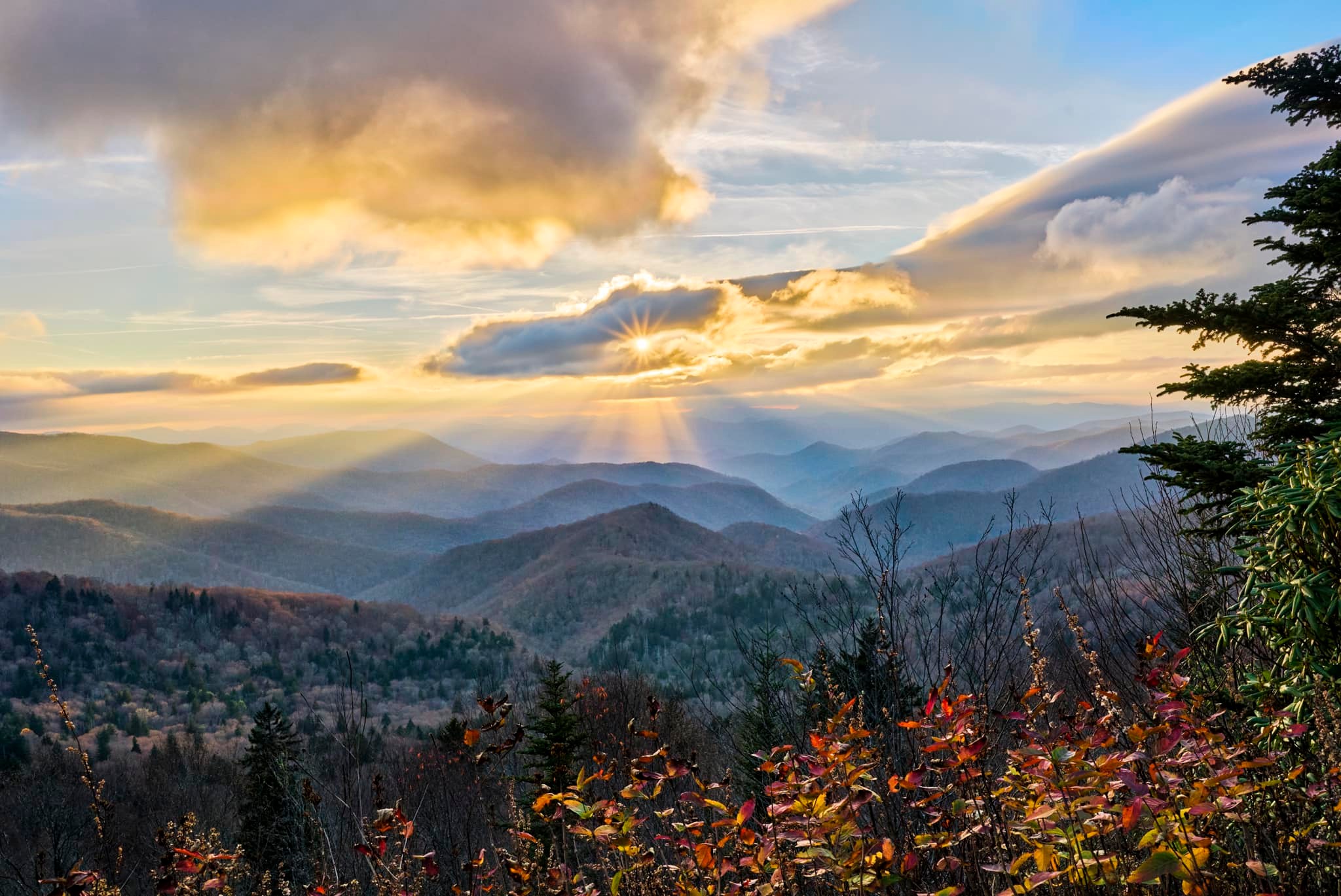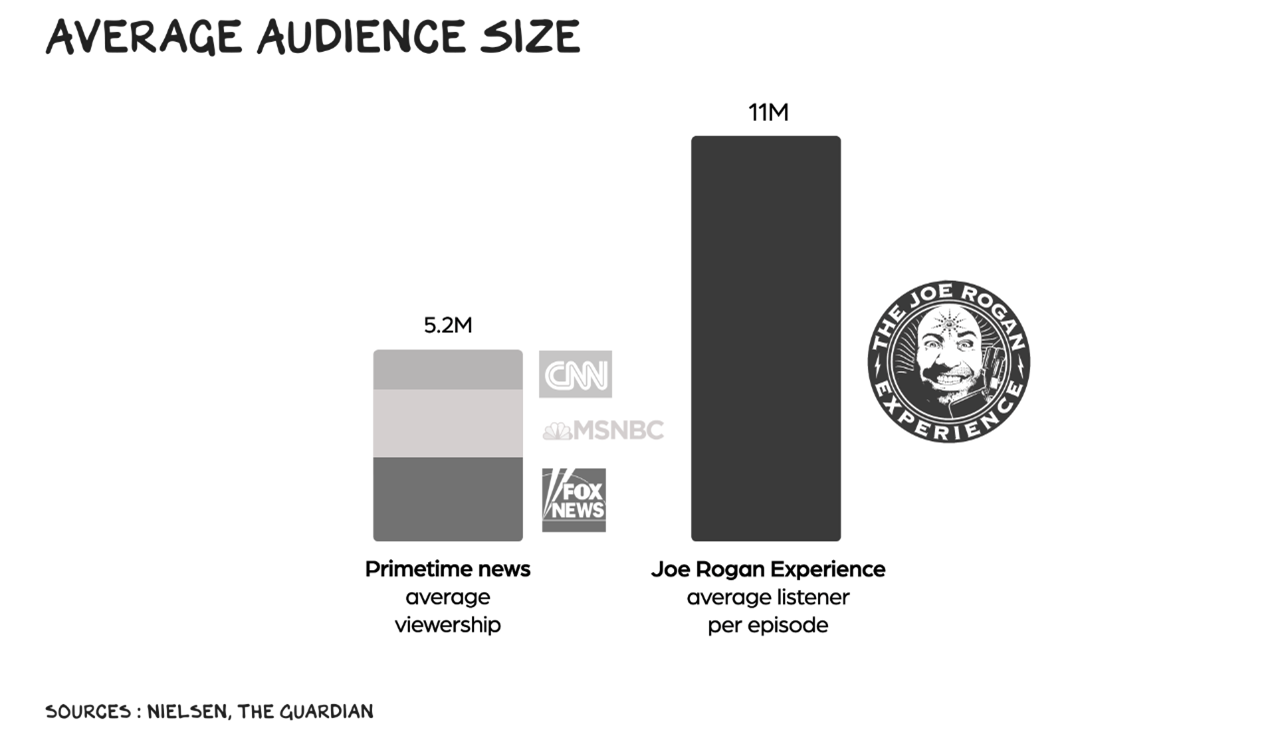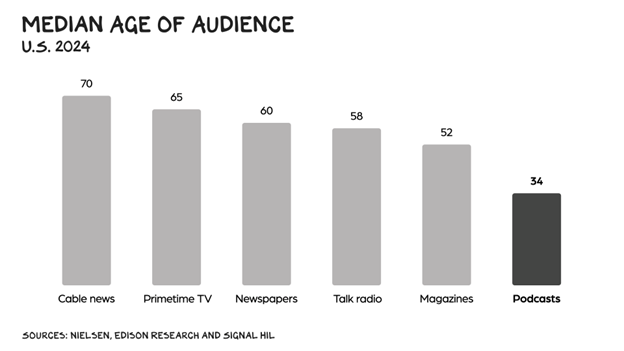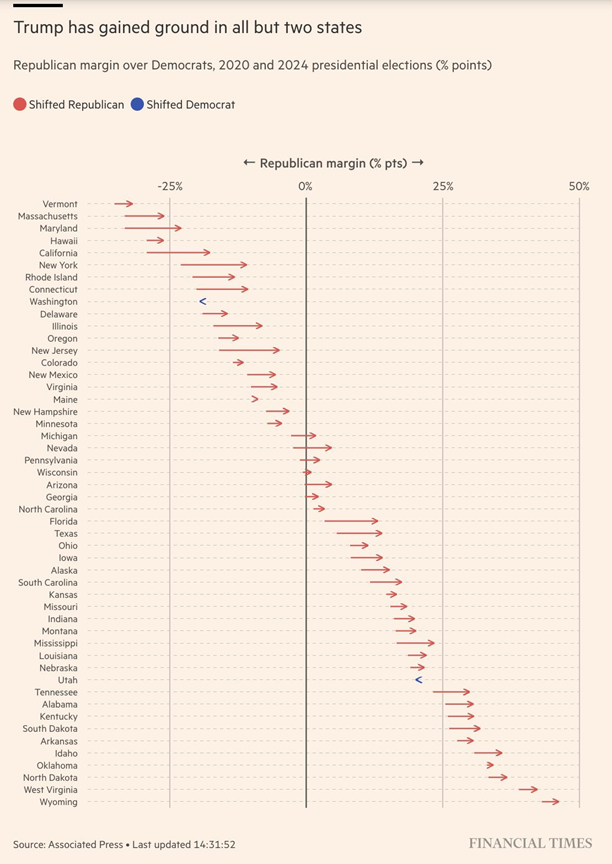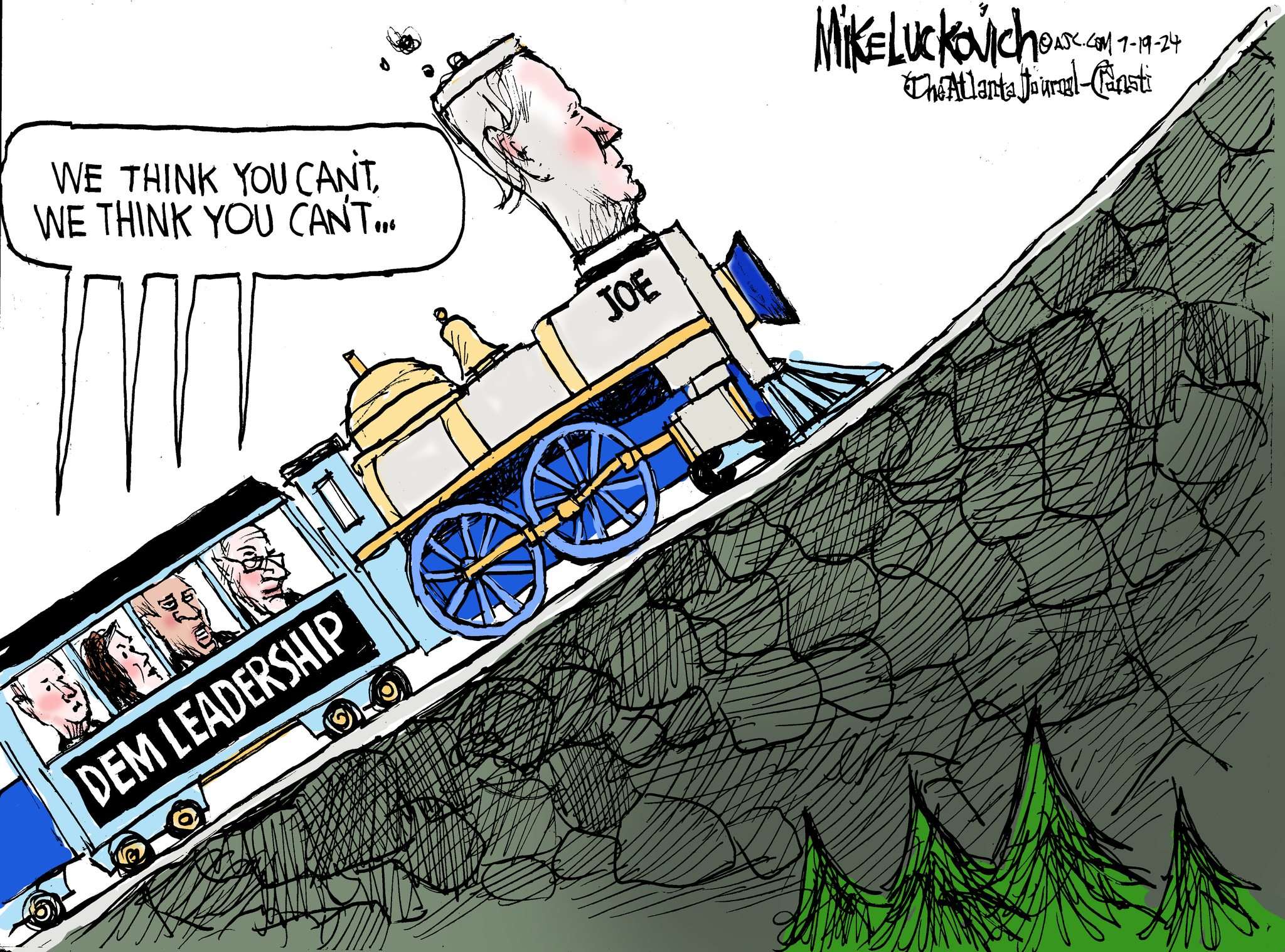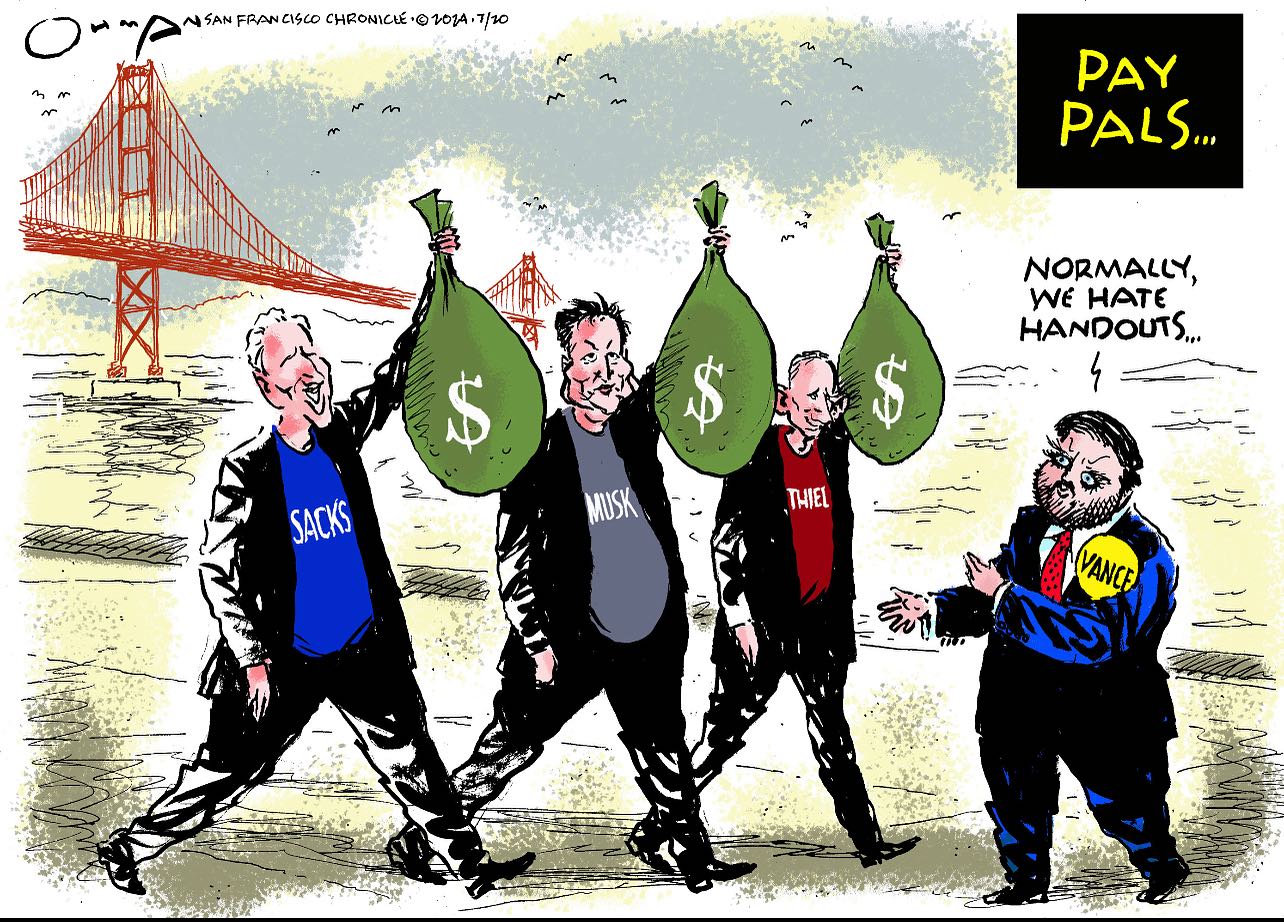The Daily Escape:

Pikes Peak, Colorado Springs, CO – December 2024 photo by Monica Breckenridge.
The Democrats are meeting this week to decide on who will lead them into the 2026 midterms and the 2028 general election. Wrongo thinks it’s time for a revolution.
The key question is how do Democrats go back to winning presidential elections? And it may not be the way you think. From Jon V. Last:
“Since Trump’s emergence in 2016 the opposition has responded by acting as if it were still 2015. The Biden administration pursued a vigorous, bipartisan agenda filled with popular legislation designed to promote economic growth across the board. Biden spent money on infrastructure and manufacturing—much of it in red states and rural areas where Democrats had little support.
The Biden administration’s theory was that by governing from the center and focusing on employment and economic growth, Democrats could retain the support of the majority….”
But that theory didn’t work, and Trump won, running on zero ideas about growth, prosperity, or progress. His campaign was posited on the infliction of pain to outsiders. Trump didn’t promise to improve the lives of his voters. He promised to punish the people his voters wanted to hurt. That was the entirety of his electoral proposition, and none of it was subtext. Instead it was bold-face, ALL CAPS text.
Last says it worked because America has changed and the majority of voters are no longer motivated by wanting progress for themselves. Instead they’re motivated primarily by anger that out-groups—the people they do not like—might be succeeding or getting benefits they’re not getting.
If this is true, and at least some evidence suggests it is, how do Democrats persuade voters not to be quite so angry and to vote for them? From Brian Beutler: (emphasis by Wrongo)
“…winning the next election will require Democrats to persuade some as-yet unpersuaded voters that they’re worth voting for. Whatever policies Democrats think are popular, whatever affects they associate with normalness and affability, if they can’t do the delicate work of changing a mind, they can’t get anywhere.”
More:
“Democrats are about to have as little power as they’ve had at any time in the past two decades for a simple reason: Most Americans weren’t convinced that they’d be better off under Democratic rule. That’s it. And there’s no shortcut back to power that avoids the difficult task of convincing people to change their minds.”
More: (emphasis by Wrongo)
“The Democrats need more and better communicators, and, crucially, it needs the people who don’t understand their potential to influence conventional wisdom and public opinion to get with the times. Most persuasion doesn’t happen person to person, it is mediated. When it does happen person to person, it is most often between people who already know each other, and usually one of those people is regurgitating ideas they picked up….And the ripest targets are no longer classic swing voters who are happy to talk politics with strangers….”
Couple all of this with the problem of where people get their news, and you have Dems digging out of a ditch partially of their own making. What Democrats are missing more than anything is creative thinking about how to reach people who will never answer a telephone call from a number they don’t recognize, never answer the door for a canvasser, and never form lasting political beliefs by watching or reading professional newscasts (because they rarely, if ever do).
This time around, Democrats either need their leaders to adapt, or else they need new leaders.
Jon Last thinks what will win votes in this environment is a lefty demagogue akin to what Bernie Sanders has been selling for years with his “millionaires and billionaires” rants. Sanders’s pitches resonated with younger voters. He got quite a lot of traction in 2016, but Democratic Party primary voters were not ready for him.
Who should the Dems support to lead them into the next round of elections? It should be a group of people in the 30’s, 40’s and 50’s. And thank God there is at least some movement among “younger” Democrats on the Hill to challenge the party’s gerontocracy.
Billy Ray is a screenwriter. His Captain Phillips screenplay earned him an Oscar nomination. He thinks the Democrats’ storytelling ought to start with:
“Whoever is going to be our next presidential candidate needs to look to the American people and say, ‘You matter. Not me, not Trump. You matter. You matter to your family, you matter to your community, you matter to your country,’” he adds. “‘You matter to our collective future, and you matter to me. And what I’m going to do for the next four years is just work for working families. I’m going to do the things that made the Democratic Party your party for so long.’”
Working families. Who among the Democrats out there can build on and carry this message home?
Evolve or Die, Dems.



